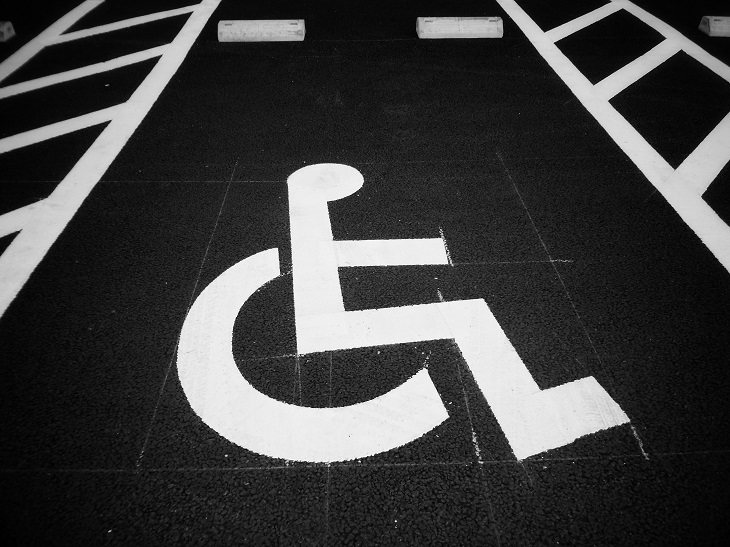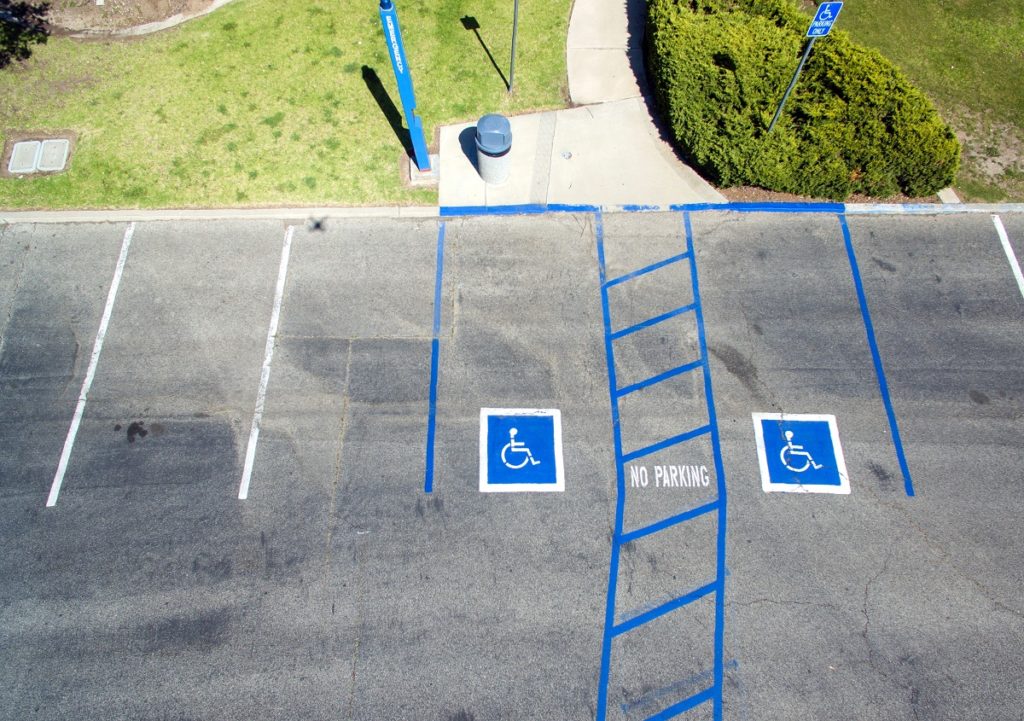Alabama has a well-run and user-friendly disabled parking program. The Alabama program adheres to the Americans With Disabilities Act (ADA) guidelines and is similar to the disabled parking programs you will find in other US states.
The Alabama disabled parking program exists to improve the lives of disabled Alabama residents and disabled visitors to the state. In order for the program to operate optimally, it is important that all users understand and abide by its rules and regulations.
There are several questions that all Alabama disabled parking permit-holders, and visitors to the state, need to know the answers to, such as… Is handicap parking free in Alabama? Can you park free at a meter with a handicap placard in AL? Can you park in a handicap spot with disabled veteran plates in Alabama? What is the fine for parking in a handicap spot in Alabama without a permit?
Read on to discover the answers to these important questions.
Alabama Handicap Parking Laws
Although each US state abides by the ADA, each also implements its own unique handicap parking program. Alabama has its own disabled parking program rules, regulations, and laws. It is important that people who intend to use Alabama handicap parking infrastructure understand the specific Alabama handicap parking laws.
Is Handicap Parking Free In Alabama?
It is free to get a handicap parking placard in Alabama. It is also free for permit holders to park in Alabama if they are parking in a designated disabled parking space.
How Do You Recognize An Alabama Disabled Parking Spot?
Alabama disabled parking spots are signposted with the International Symbol of Accessibility. According to the ADA, all official disabled parking spaces must be clearly signposted with a sign that sits at least five feet off the ground.
Can You Park Free At A Meter With A Handicap Placard In AL?
Unlike in many other US states, disabled parking permit holders cannot park for free in metered, on-street spaces in Alabama. Disabled drivers must pay if they want to park in metered spaces in this state.
What Is The Fine For Parking In A Handicap Spot In Alabama Without A Permit?
If a person parks in an Alabama disabled parking spot without a permit they will be fined $50 for their first offense, $200 for their second offense, and $500 for any future offenses.
Can You Park In A Handicap Spot With Disabled Veteran Plates In Alabama?
Unlike in other states, a Disabled Veterans tag on its own does not entitle its holder to park in disabled spaces in Alabama. To park in disabled spaces, a disabled veteran in Alabama must have a disabled license plate or have a wheelchair symbol added to their Disabled Veteran tag.
How Do You Get A Handicap Parking Permit In Alabama?
To get a disabled parking permit in Alabama, you need to have a consultation with a qualified medical professional who will verify your disability. This is easy to do remotely through the Dr. Handicap online clinic. You, and the examining medical professional, will then need to complete an application form and submit it to a Local County Licensing Office.
Who Can Verify An Application For Disabled Parking in Alabama?
The only type of medical professional who is qualified to verify an application for an Alabama disabled parking permit is a licensed physician.
What Types Of Handicap Parking Permits Are Available In Alabama?
There are three types of disabled parking permits available in Alabama:
- Long-term disabled placards and plates (valid for five years)
- Temporary placards (valid for six months)
- Organizational plates
What Are The Qualifying Conditions For Disabled Parking In Alabama?
The qualifying conditions for a disabled parking permit in Alabama are:
- The applicant cannot walk two hundred feet without stopping to rest
- The applicant cannot walk without the use of a walking assistance device
- The applicant suffers from a cardiac condition that is classified in severity as Class III or Class IV by the American Heart Association
- The applicant is limited in their mobility by an orthopedic, arthritic, or neurological condition
- The applicant suffers from lung disease to the extent that their forced respiratory expiratory volume for one second, when measured by spirometry, is less than one liter, or the arterial oxygen tension is less than 60 mm/hg on room air at rest
- The applicant uses a portable oxygen tank
Featured image by Zach Farmer on Unsplash









